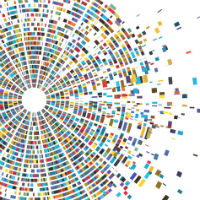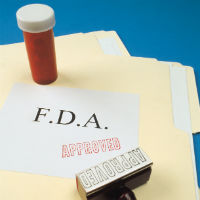Competition Sparks Novel Solutions for Regulatory Science Challenges
After hosting the event virtually last year, the annual America’s Got Regulatory Science Talent student competition was held in person on February 24, 2022. The competition, which is hosted by the UR CTSI’s Regulatory Science Program, featured 14 competing teams – a record for the nine-year-running competition.
The teams presented innovative solutions to address focus areas of regulatory science outlined by the Food and Drug Administration (FDA) in its 2021 report on Advancing Regulatory Science at FDA. Teams vied for the first place prize: to discuss their ideas with members of the FDA.
Meet the top three teams from this year’s competition:
First Place: Smart Event Evaluation and Reporting (SEER)
If a consumer has a bad experience with a medication, vaccine or medical device, they have several options for reporting that experience: the FDA Adverse Event Reporting System (FAERS), MedWatch, the Vaccine Adverse Event Reporting System and more. Each of these reporting systems generates a great deal of data: there were over 2 million adverse events reported last year in the FAERS alone.
Reviewing and monitoring this massive amount of data poses a problem for the FDA, which Truskinovsky and Orko propose to fix using artificial intelligence. Using their Smart Event Evaluation and Reporting (SEER) system, the pair would combine and analyze data from all of these disparate sources to identify genuine issues with medical products that could inform regulatory decision-making.
Second Place: COVIDeo App Uniters
As at-home COVID tests become more widely available, the need for easy instructions and accurate test information grows. The COVIDeo App Uniters propose to develop a mobile app that at-home test users could download from a QR code on the test kit packaging.
The app would provide a nonverbal video acting out the test kit instructions in a way that is easy for all users to follow, regardless of native language or literacy level. The app would also issue push notifications about major test kit recalls and would offer on-demand resources such as translated informational videos and information on where to report a positive test.
Ultimately, the team hopes the app would help consumers make better-informed decisions about the proper use of at-home COVID tests.
Third Place: Allergen Hunters: Empowering Consumers to Make Safer Choices
Food allergies are widespread in the U.S. – nearly 32 million Americans have one – but food labels currently only list eight of the most prevalent allergens: milk, eggs, fish, shellfish, tree nuts, peanuts, wheat and soybeans. With the increasing complexity of food products in the U.S., it is likely that food labels are missing many less-prevalent food allergens.
Using machine learning, Shekhar and Talaulikar plan to cross-reference the 8,000 food items and 150 nutrients listed in the USDA National Nutrient Database with the unique ingredient identifier codes listed in the OpenFDA Substance Data. All food items would then be marked as a potential allergen or safe. Ultimately, they hope this could help the FDA regulate food labels, increase product safety and empower consumers to make better-informed decisions.
This year’s judges included: Ajay Anand, Ph.D., associate professor and deputy director of the Goergen Institute for Data Science at the University of Rochester; Peggy Auinger, M.S., senior associate biostatistician in the Department of Neurology and Center for Health + Technology at the University of Rochester Medical Center; and Carlos Peña, M.S., Ph.D., chief regulatory officer/chief quality officer in the Office of Regulatory Services at the Jacobs Institute.
###
The America’s Got Regulatory Science Talent student competition is organized by Scott Steele, Ph.D., director of UR CTSI Regulatory Science Programs, and Joan Adamo, Ph.D., director of Regulatory Support Services at UR CTSI, and is supported by the University of Rochester CTSA award number UL1 TR002001 from the National Center for Advancing Translational Sciences of the National Institutes of Health. The content is solely the responsibility of the authors and does not necessarily represent the official views of the National Institutes of Health.
Michael Hazard | 3/17/2022



